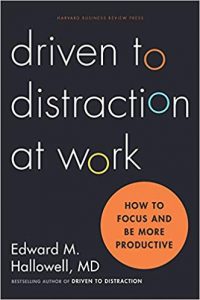There’s a new refrain I’m hearing more and more everywhere I go. It used to be, “I’m so upset, I don’t know what to do.” But that’s just not sustainable. You can only be so upset you don’t know what to do for so long. Then you need to figure out something to do. And that’s become the new refrain.
What I hear more and more, everywhere I go, is this: “I’ve decided I’m going to focus my energy and my talent and my resources on what I can control. I’m going to let the rest go hang,” or words to that effect. In addition, “I’m going to work on what I can actually change myself, or help a team to change, and let the rest be damned,” or words to that effect. Finally, “I’m going to stop being so upset by what I can’t control and start taking satisfaction in working on what I can control.”
That’s the new refrain. That’s the conclusion more and more people tell me they’ve reached, everywhere I go.
Why It Makes A Lot of Sense
It makes a lot of sense. One way to die young, or get sick soon, is to worry yourself silly over all the things you can’t control, and these days we have more than life’s usual array of scoundrels, thieves, charlatans, and popinjays who’d steal us away from the meaningful tasks and pleasures we can actually regulate and develop ourselves. They would abscond with our minds, if we’d let them, and lately we’ve been letting them, many of us have at least, myself included.
Which is why I am joining the refrain. I intend to embrace, work on, advance, and sweat over what I can stand a chance of controlling or at least significantly influencing myself. Then, I will do my very damnedest to ignore the most diverting sideshow this country has ever seen.
Stop Getting Distracted By The Sideshow
If I am going to get work done, if I am going to have fun, I’ve got to stop getting distracted by the sideshow, because it’s becoming the main show. For us with ADHD, this is a teaching moment, as the new jargon puts it. People like me can take a lesson and learn how to focus on what matters. We need to stop getting distracted by what is enormously entertaining and seems to matter a hell of a lot, but over which I, at least, have zero control.
Getting Back To Work
I have to get back to work. Need to get back to:
- to this note;
- and my books;
- let’s not forget my patients;
- and my talks;
- also need to grow my clinics,
- to spreading my strength-based message; and, of course to
- having fun with my wife and our kids and our friends.
I bet you have really interesting stuff to get back to as well. As incredibly diverting as the sideshow is, produced by masters of entertainment and PR, we have to seize this teaching moment and discipline ourselves to get back to tending to what we can significantly influence and control.
Don’t get me wrong. I am not saying don’t vote. For goodness sake, vote! Every citizen should vote if he or she wants to call him or herself a citizen.
But at the same time, live the life that adds the most to this world. Live the life not of a spectator, but of a do-er, a creator, a builder.
Enough of the feeling miserable, ok? Let’s do something positive every day.
 When you’re worried, stressed or having a “Not Very Okay At All” day, Dr. Hallowell recommends you “Never Worry Alone.” On those days when you’re not feeling quite right, remember his advice and find your “Piglet” (read passage below) to share how you’re feeling.
When you’re worried, stressed or having a “Not Very Okay At All” day, Dr. Hallowell recommends you “Never Worry Alone.” On those days when you’re not feeling quite right, remember his advice and find your “Piglet” (read passage below) to share how you’re feeling. The Surgeon General named loneliness as the #1 medical problem in the country. We live in a world characterized by what I call “the modern paradox”: miraculously connected electronically, we are growing disconnected interpersonally. This social isolation is as dangerous a risk factor for early death as cigarette-smoking, high blood pressure, and obesity. In this
The Surgeon General named loneliness as the #1 medical problem in the country. We live in a world characterized by what I call “the modern paradox”: miraculously connected electronically, we are growing disconnected interpersonally. This social isolation is as dangerous a risk factor for early death as cigarette-smoking, high blood pressure, and obesity. In this What is ADHD CollegeCORE Coaching and how can CollegeCORE Coaching help you?
What is ADHD CollegeCORE Coaching and how can CollegeCORE Coaching help you? If you’re having difficulty staying focused and feeling stuck at work, you can follow the 6 tips below, adapted from Dr. Hallowell’s book:
If you’re having difficulty staying focused and feeling stuck at work, you can follow the 6 tips below, adapted from Dr. Hallowell’s book:





